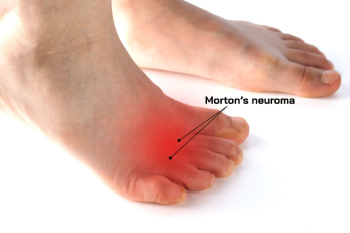
Morton's neuroma, a painful condition characterized by the thickening of tissue around the nerves leading to the toes, can significantly impair mobility and quality of life for those affected. While conservative treatments such as orthotic devices, shoe modifications, and corticosteroid injections can provide relief for some individuals, surgery may be necessary in cases where symptoms persist or worsen over time. Surgical intervention for Morton's neuroma typically involves removing the affected nerve tissue to alleviate pain and discomfort. The procedure aims to release the pressure on the nerves and restore normal function to the foot. Surgeons may opt for various techniques, including nerve decompression or neurectomy, depending on the severity and location of the neuroma. While surgery offers the potential for long-term relief from Morton's neuroma symptoms, it also entails risks and considerations that patients should discuss thoroughly with their podiatrists. If you have developed Morton’s neuroma, it is suggested that you consult your podiatrist who can discuss if surgery is a treatment option for you.
Morton’s neuroma is a very uncomfortable condition to live with. If you think you have Morton’s neuroma, contact Anas Khoury, DPM of North Eastern Foot & Ankle Specialists. Our doctor will attend to all of your foot care needs and answer any of your related questions.
Morton’s Neuroma
Morton's neuroma is a painful foot condition that commonly affects the areas between the second and third or third and fourth toe, although other areas of the foot are also susceptible. Morton’s neuroma is caused by an inflamed nerve in the foot that is being squeezed and aggravated by surrounding bones.
What Increases the Chances of Having Morton’s Neuroma?
- Ill-fitting high heels or shoes that add pressure to the toe or foot
- Jogging, running or any sport that involves constant impact to the foot
- Flat feet, bunions, and any other foot deformities
Morton’s neuroma is a very treatable condition. Orthotics and shoe inserts can often be used to alleviate the pain on the forefront of the feet. In more severe cases, corticosteroids can also be prescribed. In order to figure out the best treatment for your neuroma, it’s recommended to seek the care of a podiatrist who can diagnose your condition and provide different treatment options.
If you have any questions, please feel free to contact our office located in Passaic, NJ . We offer the newest diagnostic and treatment technologies for all your foot care needs.
